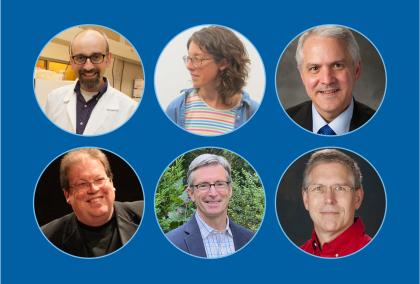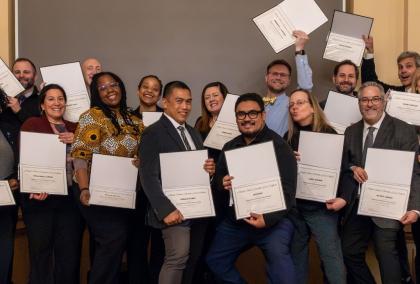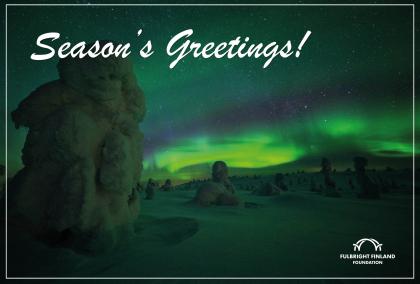Any Corner of the World
By Brittany Perry
Written on June 1, 2020
Published on August 17, 2020
I have not shaved in 47 days. I think constantly about food – whether I have enough, or when I will have to risk going out to get more. Thankfully, I have plenty of water. Medicine and food are the only essentials I risk going outside for. I have memorized the patterns of nature – the rising and setting of the sun, the local birds, and the smells and subtle changes in the air before rain.
This may sound like I’ve been in isolation, or stranded on a deserted island. However, yesterday I went to the grocery store and ate ice-cream while waiting for my usual bus home. Today I did dishes and laundry, then made pizza and called an old friend to do crosswords together. I regularly laugh with family and friends on the phone, and after work I unwind by learning to play guitar, although I’m not very good at it, yet. So, while I may not be on a deserted island, my world isn’t exactly normal either.
"If you had told me that one day the world would be in lockdown with limited to no social interaction, and during this time that I would be 6,000 miles away from home and 300 miles south of the Arctic Circle, I would’ve wondered how I survived."
The word quarantine is defined by the Oxford dictionary as “a state, period, or place of isolation.” I am an extrovert who relishes social interaction; even as a child, I dreaded the potential of ending up alone on an island like the misfortunates I read about in shipwreck stories. If you had told me that one day the world would be in lockdown with limited to no social interaction, and during this time that I would be 6,000 miles away from home and 300 miles south of the Arctic Circle, I would’ve wondered how I survived. Thankfully, fate offered the answer months before the COVID-19 pandemic began in the form of a phone call and a plane trip.
After ten years, I had carefully worked to create substantial experiences for medical school applications, crafted, I’ll admit, via uncountable false starts, copious tears, and almost daily reassessment of my life choices with Ben and Jerry’s ice-cream in one hand and The Office in the other. At one point, I was ready to give up on my dream of becoming a physician. However, after seeing multiple family members pass away in recent years, including my grandfather, whose pulse stopped beating under my fingers late on Christmas Eve, I realized that life is uncertain. I could let that uncertainty instill fear: something bad could happen – or inspire faith: something good could happen. I didn’t want to live in fear anymore. With the support of my family, friends and mentors, I got my graduate degree, applied for a Fulbright fellowship to study a topic I’m immensely passionate about – global maternal and infant health – and applied to medical school one last time. I talked myself, alongside my amazing graduate counselor, into the idea that if I was selected for the Fulbright program the travel required for medical school interviews would be manageable while overseas. Not long after, with what I consider to be one of the greatest strokes of luck and opportunity in my life, I got on a plane to start my year as a Fulbright Fellow in Tampere, Finland.
Months later, working late one night as a heavy snowstorm descended against the wide, modern windows of the Tampere University Arvo Medical Building, I received a phone call. After the call, I finished up work and found myself dancing out into the snow and all the way home in the darkness of the endless polar night. I had been offered my first medical school interview, ever. I would need to fly back to the US for a week, but I was elated. It was November 14, 2019, 3 days before the first case of Coronavirus would later be speculated to have been detected in China.
Over the next months, one interview turned into three. Week after week, I grabbed my still-partially packed backpack, blinked off 7 time zones of jetlag and took the 2 buses, 2 trains, 4 planes and 2 taxis across the 24 hours of day- and night-less chasm that separated Tampere, Finland and Florida, USA. After three round-trip flights to the US in 60 days, I returned to Finland, showered with scalding water, and collapsed on my couch. My post-interview stress, the war-zone restrictions of my impending travel to Ukraine for a conference, and the increasing news reports of this COVID-19 virus – “Travel is no longer safe!” “It’s spreading across the world!” – swirled in my mind like baubles in an inky cauldron as I drifted off into a fitful sleep on my couch. Packing for the conference would have to wait.
What came next was a blur. Panic disorder is a disease that wholly commandeers you when you least expect it. I went from not having a single panic attack in my life to having 11 in one week. Anxiety disorders are not “feeling anxious” - a normal and healthy reaction all people have to stress which can be treated with typical remedies. Anxiety disorders occur when your brain and very willpower are callously hijacked by a chaotic storm of neurotransmitters; they may often be genetic, and they rarely go away without professional treatment. Because of stigma and lack of research, many people with mental health disorders go undiagnosed and suffer for years or experience high mortality rates. When I returned from Ukraine, I remember feeling numb as I curled up in bed, my body and mind wracked with the darkest thoughts I had ever imagined, night terrors, nausea, and insomnia, while wave after wave of panic attacks kept me in a continuous fog of exhaustion. I took action quickly. Fulbright Finland supported me every step of the way, and in a matter of days I had amassed amazing therapy, medical appointments and genuine care from my family both at home and in Finland. At the same time, however, I could feel the tremors of COVID-19 growing stronger every day. The virus took up more and more space in the news, bleeding over its usual confines in international affairs to front page headlines around the globe. Nobody could assess what was coming, but everyone was trying their best to prepare.
We were told, during a conference call with Fulbright Finland, that if the Department of State declared a Global Level 4 Health Advisory we may need to prepare for immediate departure. This news came just days after I had begun therapy and returned from Ukraine, my mind still reeling from panic attacks. I remember my colleagues posing thoughtful and relevant questions during that conference call, and Fulbright Finland responding as compassionately and informatively as they could. I also remember trying to take notes, but I could barely concentrate over the churning of my already-cramping stomach. I looked at my furniture and the important documents strewn across the laundry, untouched since my first panic attacks days ago. Could I really pack in 24 hours and move overseas, when I barely had the strength to make toast? I called my parents in tears. “I don’t know what to do,” I said. The airports were closing. The schools were closing. National borders began closing one by one, like dominoes falling one after the next. Thanks to the advice of my epidemiology colleagues, I knew the dominos would continue to fall and Finland’s borders would be next.
Sure enough, days later, a Global Level 4 Health Advisory was declared along with a worldwide suspension of the U.S. Fulbright program – which called for an immediate departure of all Fulbrighters located around the globe. Every support system we could need was in place – a private travel agency, reimbursement for departure - and the United States Ambassador to Finland and Fulbright Finland especially were right beside us. Everyone offered help; my parents, my colleagues, even my roommate helped by washing my dishes, but I was still so crippled with panic, struggling to keep my international health insurance. I felt like a long-distance runner who broke their leg on the day of the big race, looking ahead at the impossible stretch to the finish line. “We’ll support you as best we can if you decide to stay,” Fulbright Finland assured us. “The Ambassador is here for you, too.” My parents and mentors and roommate supported me one hundred percent, as well. I was weeks away from securing the proper care I needed to pull up out of the pain and exhaustion I slogged through daily. I pulled the trigger and sent the email to Fulbright. “I have decided to stay, as I am not well enough to evacuate.” I typed, feeling like a failure. I watched as my friends departed from Finland one by one. They packed overnight and disappeared, catching the last flights out. “Are you leaving or staying?” The message popped up on my phone, the dim backlight shining in the winter darkness of my room. “I’m sick, I have to stay and get stronger,” I typed back, again feeling in the pit of my stomach that I was copping out. Why can’t I just pull it together? Why now? I asked myself. Will I ever feel like myself again? This is so embarrassing. I wish I was normal.
Looking back now, while I’m sure nobody would voluntarily choose to have their first mental breakdown two weeks before a global pandemic while living abroad, this part of my journey gave me two particular opportunities. First, the upcoming global pandemonium would end up being harder and longer than anyone hoped, especially in the US. I was fortunate to have access to the proper mental health support, and saying “yes” to that support before things got worse was the best decision I ever made. My therapist and psychiatrist walked me through an interminable lot of questions, not only during the first grueling weeks of treatment for my anxiety, but also during the simultaneous outbreaks: How should I cope with pandemic fears? When should I return to the US? How could I continue treatment in the US if the pandemic got worse? My therapist was a lifesaver in a sea of uncertainty.
"And although it’s not easy, I’m learning to face uncertainty with committed acceptance and go easy on myself when things are out of my control – both skills that ended up being invaluable during the COVID-19 pandemic."
Secondly, the true negative power of quarantine on the human mind might be the concept of isolation, alone. Much like my childhood fears of cracking under the pressure of a deserted island, just the idea of being banished from the norms of everyday life, from the people we love, for a few short weeks, is enough to strike fear in us all. Through my mental health journey, however, I learned how the mind can turn ungrounded fear into terror – and how self-awareness brings peace and stability, even when in isolation. I became more at peace with my own mind and thoughts. And although it’s not easy, I’m learning to face uncertainty with committed acceptance and go easy on myself when things are out of my control – both skills that ended up being invaluable during the COVID-19 pandemic.
Now, after two of the hardest months of my life, day by day the world seems brighter to me. The journey is far from over, but every day the path to the finish line is becoming clearer. Many therapy and psych sessions later, I’ve finished my projects, my sense of humor has returned, and I can watch my favorite action movies without spiraling into a panic attack at all. Today, although the US COVID-19 cases continue to climb, the virus is at a record low in Finland. The birds are singing and a light summer rain is falling outside my window. Nearly all of my suitcases are packed, and I’m finishing up my last few thank you letters to friends and mentors. In 6 days, after a year of living abroad during a global pandemic, I am going home.
"I wanted to write a “narrative essay” about life during coronavirus, the pandemic, and the practical particulars that might be helpful to others. It turns out, however, that the protagonist of any story of human disease is still, indeed, humanity."
When I was offered the opportunity to reflect on my life as a Fulbrighter during the COVID-19 pandemic, I knew I would not be able to tell the story without telling my own. I consider myself a medical person. The story of any human disease, however – pandemic proportioned or not – is still essentially about humans. From a medical perspective, coronavirus is a family of viruses that causes the common cold. Most people have already recovered from some strain of coronavirus, and we will probably all eventually be immune to this strain as well. If you put coronavirus into a drop of soap, its outer envelope breaks apart, helpless. The COVID-19 genome is a mere 30,000 base pairs – for perspective, the genome of a tomato is about 30,000 times that. Isn’t it funny, how something so small, a virus, a phone call, a plane trip, can turn our lives inside out, and make us reevaluate what matters most? I wanted to write a “narrative essay” about life during coronavirus, the pandemic, and the practical particulars that might be helpful to others. It turns out, however, that the protagonist of any story of human disease is still, indeed, humanity.
The story of coronavirus is the story of governments, politics, greed, and corruption. The story of failing healthcare systems being pushed to their limits, racism, internationalism, families reuniting, families being torn apart, heroes (voluntary and forced), friends, mental health, and toilet paper. It’s a story about homeschooling your children, coming face-to-face with the flaws of yourself and your loved ones. It’s a story about scarcity – the limitation and unfair distribution of resources - human rights, research scientists, and the value of the elderly to us all.
"However insignificant or invisible some issues may seem to us, there comes a day, or a series of prolonged, structure-less, zoom-meeting, bread-baking, haze-inducing days, where these lurking shadows finally trap us and force us to reckon with them. The story of coronavirus, much like my own, is the story of that reckoning."
Isn’t it funny, no matter how far we go to any corner of the world, no matter how far science advances, the pervasive shadows of some wounds still haunt us and refuse to stay quiet forever? In my journey with mental health, the shadows I had ignored my whole life – past traumas and a family history with mental health – discovered me at the rim of the Arctic Circle. As for the pandemic, in one of the wealthiest countries and foremost leaders in medical advancements, the shadows of racial, societal, economic and political wounds shuddered profoundly under the blow of a miniscule virus. However insignificant or invisible some issues may seem to us, there comes a day, or a series of prolonged, structure-less, zoom-meeting, bread-baking, haze-inducing days, where these lurking shadows finally trap us and force us to reckon with them. The story of coronavirus, much like my own, is the story of that reckoning. I imagine the ending of both stories, while currently unknown to me, will not be a neat or satisfactory conclusion. Instead, they will merely be “the end of the beginning,” and the dawning of a new era with a different sun, by the light of which we can see truths that, though we once preferred to hide in the mysterious dark, we are far better off now for seeing them as they are.
*Addendum
I wrote this essay before the Black Lives Matter movement began, but I do not believe it is a coincidence that the call for social justice came tangent to this pandemic. The ending of this essay reflects a truth I had barely gotten a glimpse when I wrote it – that sometimes it is our darkest moments and greatest challenges that unearth the shadows of pain and injustice in human history, as well as our own lives – but this truth is now fully evident in the passionate voice of millions around the globe demanding human rights and justice, especially for black Americans, during a time of global upheaval and crisis. I am proud to be a part of the Fulbright family during these times, a family dedicated to truth, exploration, and the “promotion of international good will” through the recognition and protection of all human rights.


